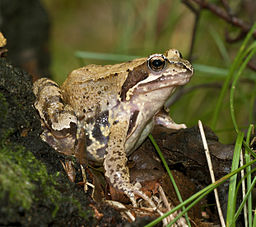 If you take frogs and spray them with some of the fungicides, insecticides and herbicides most commonly sprayed on crops, they will die. That is the conclusion of a recent paper by German and Swiss researchers in the journal Scientific Reports that received some notice in the European media.
If you take frogs and spray them with some of the fungicides, insecticides and herbicides most commonly sprayed on crops, they will die. That is the conclusion of a recent paper by German and Swiss researchers in the journal Scientific Reports that received some notice in the European media.
A brief read-through suggests that the researchers stuck three frogs in a bucket then sprayed them with a pesticide.
Needless to say, the pesticide manufacturers, object, saying that the tested conditions are worse than what happens in real life, an article in The Guardian (a British newspaper) reports. The researchers counter in the Guardian article that when multiple applications of the pesticides wash into nearby bodies of water, it’s equivalent to at least one of the test conditions, were a 10 percent solution of the chemicals were used.
Read The Guardian article here.
Read an article in Agence France-Presse (AFP)
This news is interesting, although I have qualms about the methodology (not the direct spraying or even the bucket, but that according to the AFP article only three frogs were used for each test), but the journal, Scientific Reports, is interesting as well. It’s an open-access journal from Nature Publishing. Researchers pay to play. The journal promises on its website that once payment is received, the paper will be published promptly. It also promises at least one peer reviewer.
Read the whole paper here and see what you think, because, you know, it’s open access.
Photo: European common frog, the species in the study, in Germany. Photo by Jörg Hempel, used under Creative Commons license.
